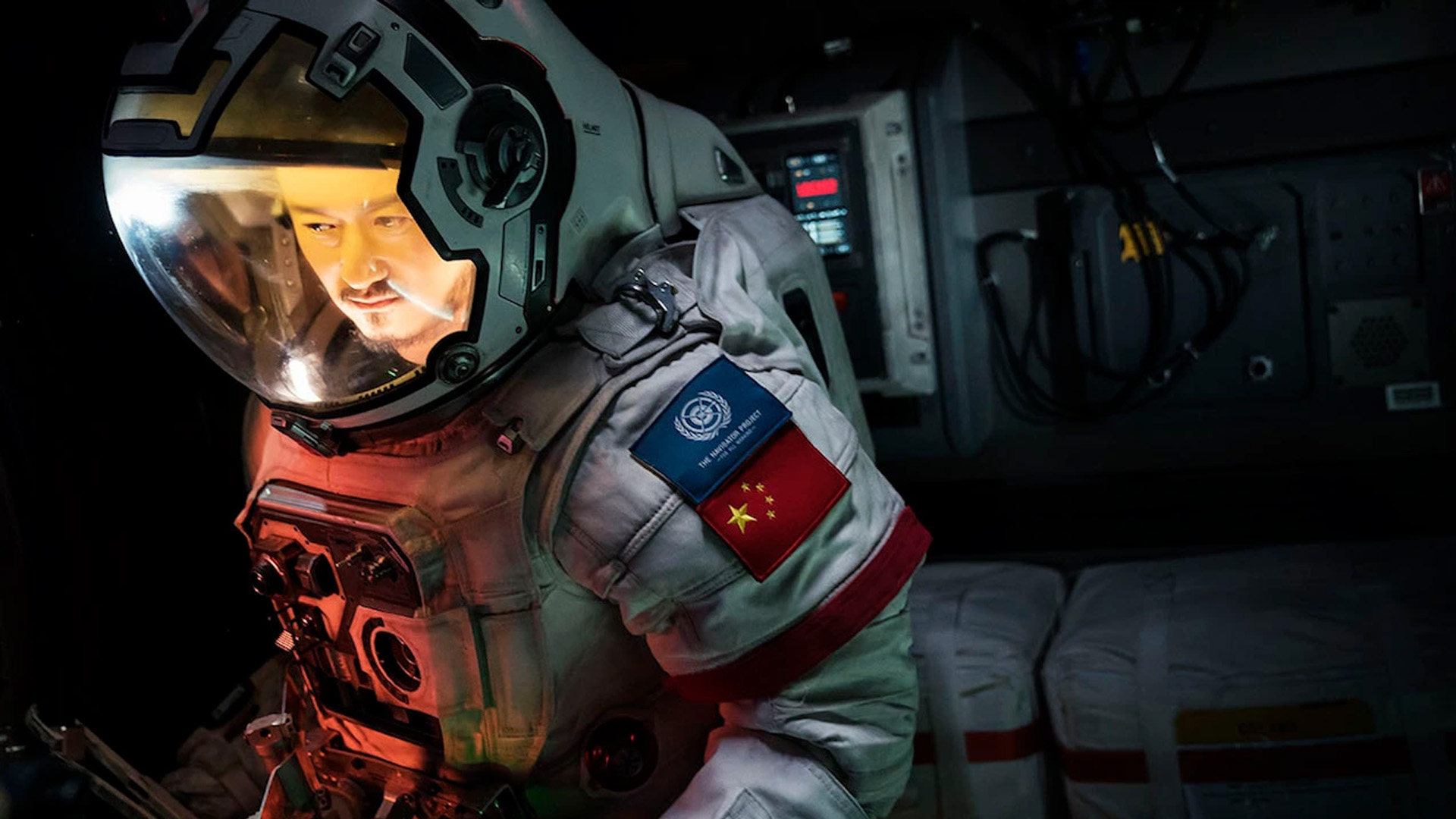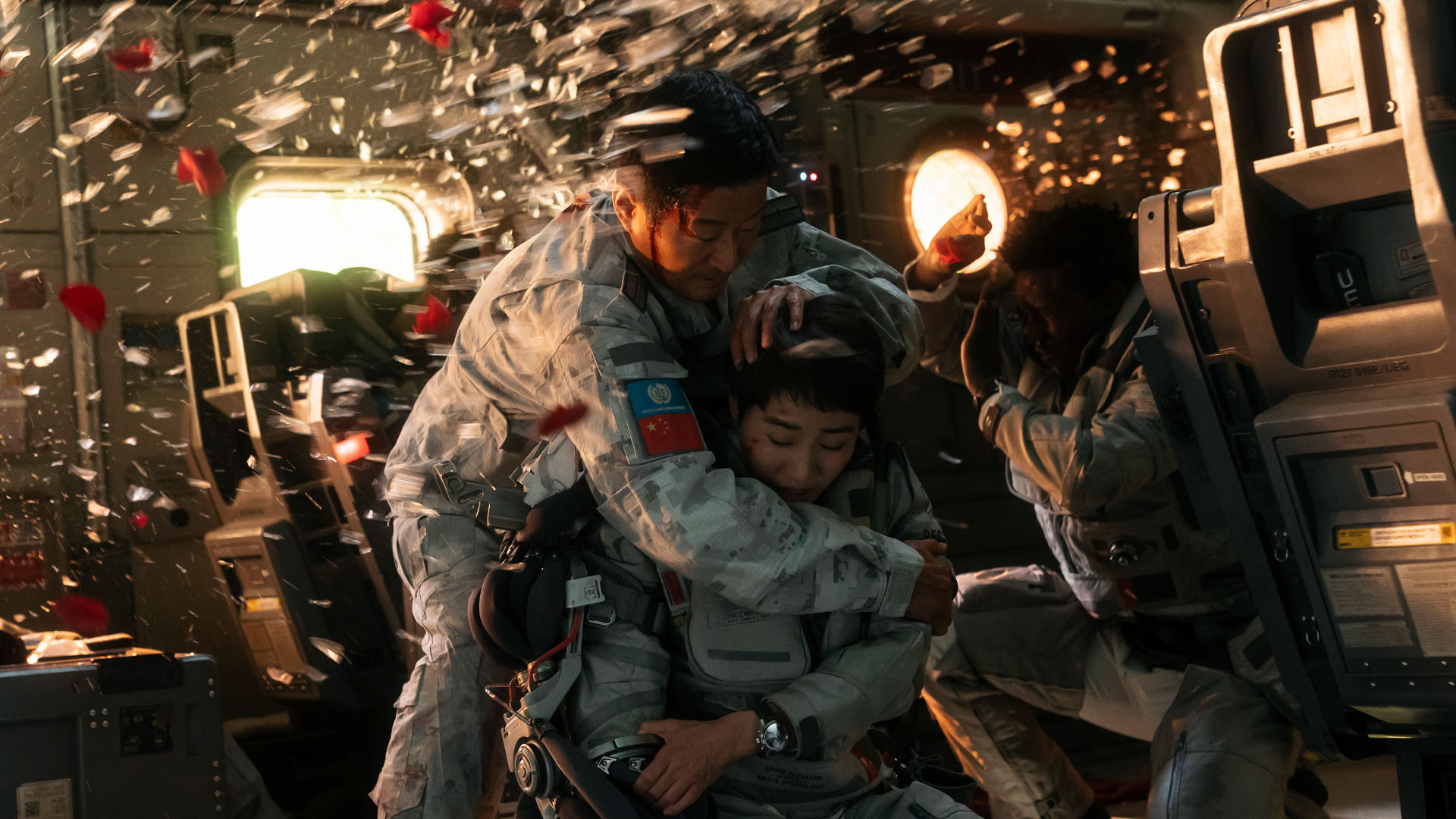The Wandering Earth 2 brings sci-fi spectacle but lacks focus

Prequel to 2019’s sci-fi blockbuster examines the lead-up to the first film’s future – one in which humans built huge engines on the surface of the earth to find a new home. There’s big-screen action to be had, says Travis Johnson, even as the film struggles to manage its complex plotlines and themes.
2019’s The Wandering Earth is a banger. Directed by Frant Gwo and adapted from a short story by literary luminary Liu Cixin (The Three-Body Problem), it’s a wildly ambitious Chinese sci-fi epic whose central conceit is that humanity comes together to turn our very planet into a nuclear-powered generation ship for a 2500-year journey to our nearest celestial neighbour in order to escape our own dying sun. My enthusiastic review led me to being accused of being a CCP sympathiser but really, I just enjoy viewing the Bruckheimer/Bay/Emmerich blockbuster paradigm through a different cultural lens, and The Wandering Earth supplies all the spectacle and action you could ask for, but with themes of societal duty and the good of the collective running it through it instead of rote rugged individualism.
The Wandering Earth 2, perhaps inevitable after the first film’s box office bonanza ($700m against a $50m budget), is a lesser effort. It still offers striking images, stirring drama, and some dizzying sci-fi concepts, but lacks its predecessor’s conceptual focus. It’s also a prequel, presented almost as cinematic historical document, taking us through the political, technological, and occasionally military clashes leading up to the United Earth Government sending our Small Blue Marble to a distant sun with a flick of a fusion-powered thumb.
At times it feels almost like a Ken Burns documentary as the film struggles to encompass numerous plotlines across decades of in-film time. At the very least, it feels like a three-episode stretch of a larger television series rather than a movie (and the three-hour running time adds to this feeling). Anyone who hasn’t seen The Wandering Earth is likely to feel disengaged. Even fans might find themselves wondering if they’d ever really wanted to know about the difficulties inherent in the first test-firing of the giant boosters arrayed around the equator of Starship Earth.
Still, there’s fun to be had here—a terrorist attack on a space elevator is a stand-out action set piece, as jet fighters scramble to take on flocks of hacked combat drones. Wu Jing’s Major Liu Penqiang returns, and we get to follow him on the life journey that led him to be the lone pilot of Earth’s navigational space station for the 17 years that separate the two films, but fans of Chinese cinema know that the real get here is legendary actor Andy Lau (Infernal Affairs, Detective Dee and the Mystery of the Phantom Flame, and about a million other films and series). Lau plays grief-wracked scientist Tu Hengyu, whose efforts to recreate his dead daughter as a digital entity dramatise one of the film’s key conflicts, as Digital Life advocates agitate for uploading all of humanity into a supercomputer rather than pursuing the Hail Mary engineering project that is The Wandering Earth.

The whole thing functions as a climate change metaphor, with one character lamenting that 91% of Americans favour doing absolutely nothing to avoid an apocalypse due a century down the track. It’s a neat bit of business, if a tad obvious. The issue is that overall the film takes itself a little too seriously, the whole thing often descending into po-faced solemnity in between bursts of high concept sci-fi derring-do, bashing the audience over the head with its themes rather than letting them propagate through the natural rhythms of the narrative.
The first Wandering Earth is a film any fan of genre spectacle can plug into, a genuinely revelatory blockbuster that balances big ideas with widescreen thrills. By comparison, The Wandering Earth 2 comes weighted with too many caveats for an unqualified recommendation. Check out the OG model first, but even for extant fans this follow-up is more of an interesting companion piece rather than essential viewing.

















